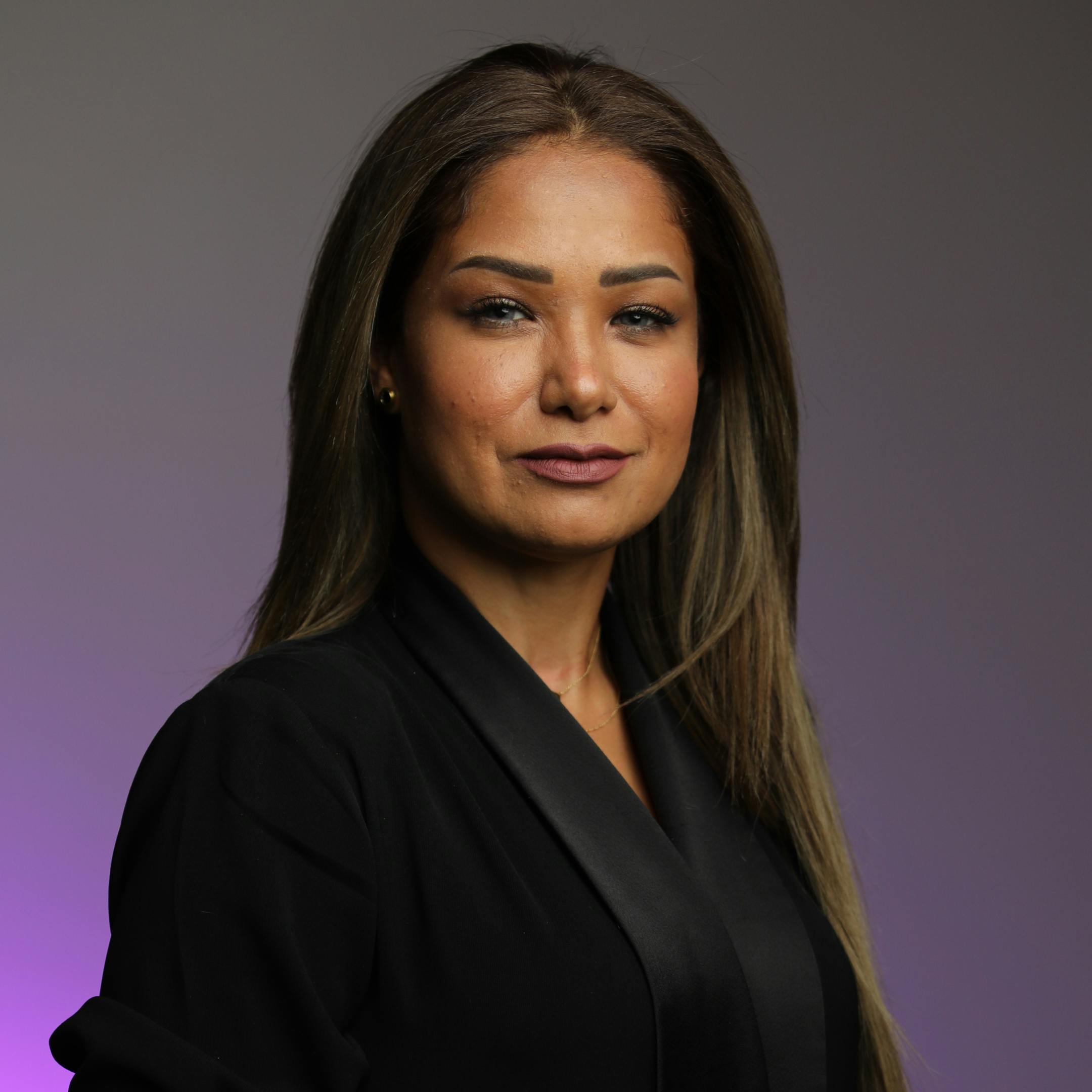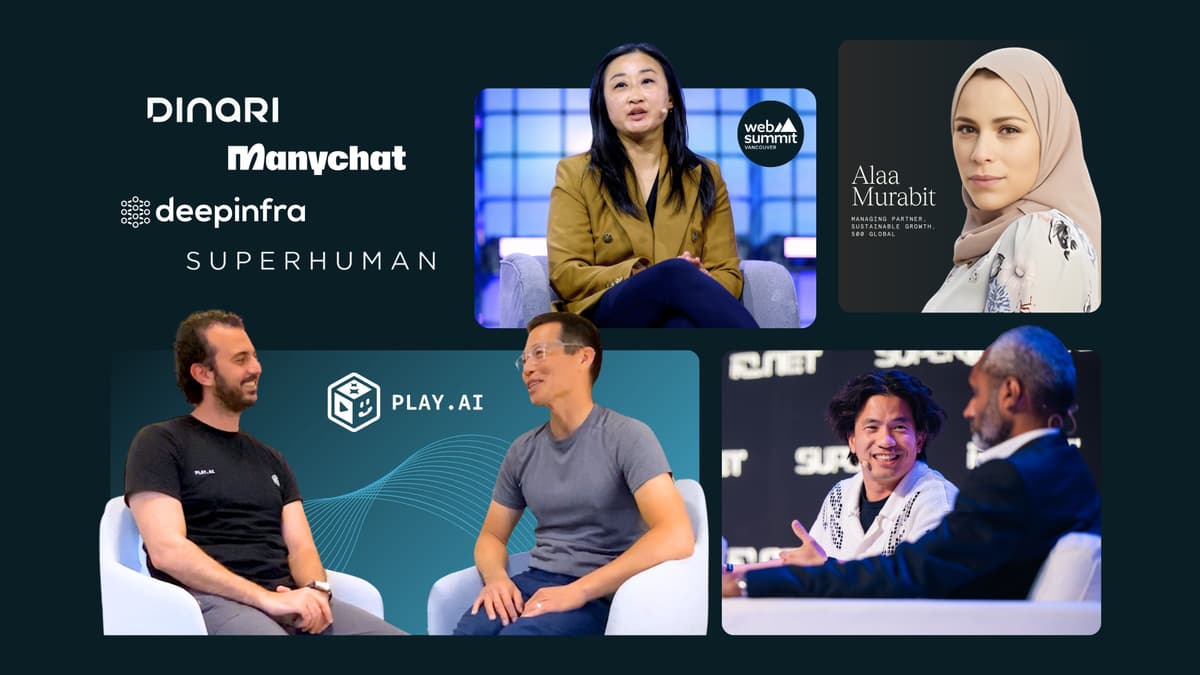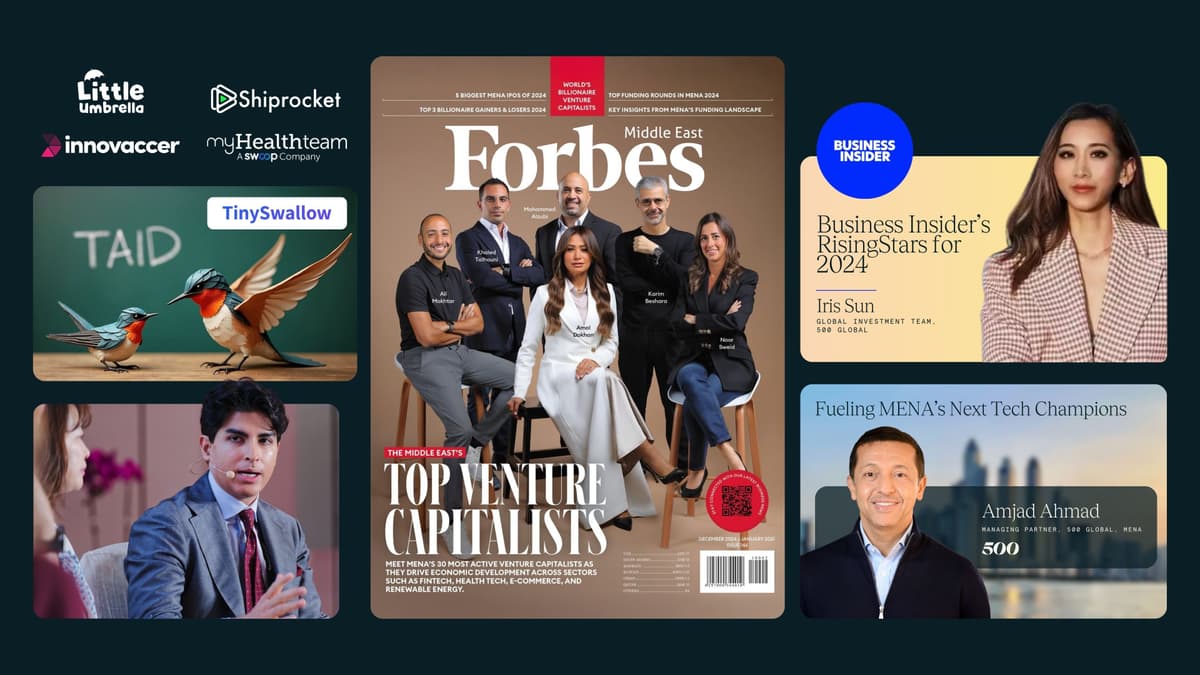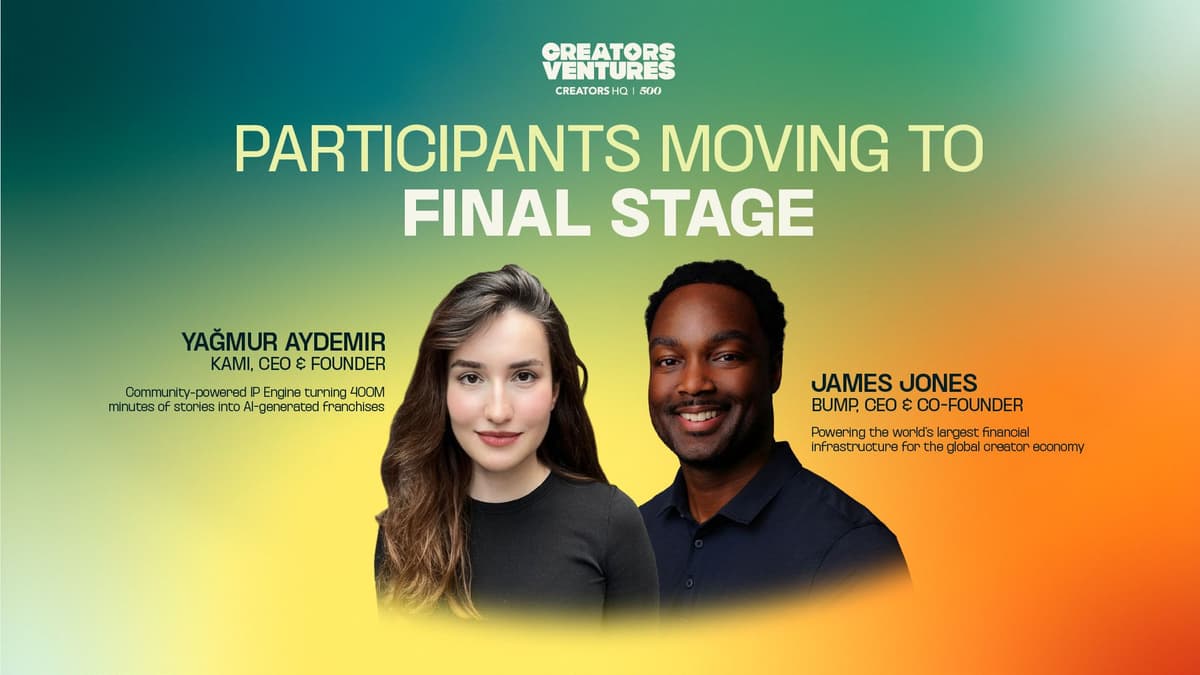Amal is a Partner at 500 Global MENA, and one of a handful of female venture capitalists in Saudi Arabia and the Middle East.
2022.04.08

500 Global Team

Amal Dokhan joined 500 Global more than a year ago to lead the Riyadh-based Sanabil 500 MENA Seed Accelerator fund, which offers a 12-week program and invests in pre-seed and seed-stage companies in the Middle East and North Africa. Prior to that, she was heavily involved in Saudi Arabia’s startup ecosystem overseeing entrepreneurship programs, and as an angel investor.
Amal believes that although MENA lagged behind other emerging markets such as Latin America and Southeast Asia, it is now developing at a much quicker pace.
Hear her insights on this episode of Rise of the Next.
Subscribe here to episodes of Rise of the Next on major streaming platforms.
TRANSCRIPT
Shereen Abdulla
Amal, welcome to Rise of the Next, it’s wonderful to have you on!
Amal Dokhan
Thank you, I’m really pleased to be with you today.
Shereen Abdulla
Likewise. Amal, I’d love to start off by asking you to please tell the audience about yourself. You know, women venture capitalists in Saudi Arabia are few and far between, we’d love to share with the audience your journey and what made you choose this path.
AMAL’S BACKGROUND AND HOW SHE ENTERED VC
Amal Dokhan
I had a different career and a different journey until 2009; but, at that time; I got involved with a startup company while I was doing my master’s degree. I didn’t know where it was going to take me because there was a second company that I was part of. In 2013, I joined KAUST’s seed funding department, and that was [my] first engagement with an institutional [fund], and I think that’s where the trigger came in place. The journey goes on, [I worked for] a period of time in the entrepreneurship center, working with MITF for a period of time in advocacy. In 2017, I started to invest myself, because there’s a beauty in being with the companies when they are ideas and then seeing what the founders can do, really, to take them forward, even with low resources in the beginning. It just felt like a perfect transition from every advocacy and system activity that I was doing. So that’s how it actually transitioned over a decade time of working with a lot of startups in the region.
Shereen Abdulla
So, what exactly is your role at 500?
Amal Dokhan
I currently work as a partner at Sanabil 500 MENA. A work of a partner is mainly starting with looking and finding the best companies, obviously, in the region that we can back up and we can add value to. We start with the investment, but our journey with the founders continues for a very long time during the lifetime of that startup company. And the other part, obviously, because we have an accelerator program attached to it, so we get the chance — and I think we have that privilege, among other VCs — that we get to spend 12 weeks with our founders that we invested in. And that gets us to really get to know them on [a] personal level. We get to support them, we get to know a lot about the company and the nuances of every market. So, that’s the advantage, I think, that we have at this stage. It’s, basically — my life is all about being with the startups, supporting in anything that’s related to the next fundraise, or accessing a new market, connecting to a corporate auto government. I’m lucky to be living all these stories, by the way, because I have so much [of] my mind and my heart [for] these entrepreneurs.
AMAL ON VC IN THE MENA REGION
Shereen Abdulla
What do you see to be unique within the MENA region? It could be specific to trends or any part of the startup ecosystem.
Amal Dokhan
I think what’s exciting about the region is the fast movement, to start with. It’s a very fast-evolving market, I don’t think there is a region that [has] evolved when it comes to cultural change, when it comes to catching up with technology — very young population that is tech-savvy, that’s already catching up with most of the global trends, which also allows a very good canvas for companies and startup companies to target that kind of population. And, maybe, the other part is a fast evolution and catching up. If you look at the region, you’ll see that every government is creating programs to support tech companies, startups, and entrepreneurship, whether in terms of ecosystem facilitation, or in terms of structuring more funding solutions, or co-matching programs, and all of this stuff. That means there’s a realization of the potential of this kind of activity.
The second thing, I think — trends are very kind of fast-moving in [a] different manner. Information flow, I think — it’s so amazing how you can see this is happening. Creating success stories is very evident and important today; so, the more we see of those, the better to impact that kind of region.
International funding is also looking at the return. It might be mostly in later rounds of funding; so, Series B and Series C. But, still, I think it’s a very exciting point to show that there is an eye to the region on what’s really happening over here.
Shereen Abdulla
Now, with the pillars you just mentioned: culture, tech adoption, or even information flow — how did these pillars, in the Middle East, differ to those in emerging markets, let’s say LATAM, or Southeast Asia?
Amal Dokhan
I think, probably, these markets started earlier. So, we have some of our activities since 2014, or 2015 over there, and we started to see that now, these markets are reaping the results of all the work that has been done before. You see unicorns being created every few months in these markets.
I think when we look at this region, in comparison to every other — we probably came a bit later, but we really moved faster than everyone else. So, I think we will not, probably — and that might be speculation, but I don’t think we will need that much of a long time to evolve into where these markets have made it today because of the technology evolution that we’re seeing in the market and because it’s just being consumed heavily within the region.
We’re also lucky to see that there is more of this wave of second generation of those founders that have started companies, and now they’re going again and starting their second. And if they’re not starting a second company, they’re being advisors to certain startups, they’re supporting their funding. They are actually getting in as angel investors. Initially, in the past two years, I can tell you that we’ve seen so much movement, literally in two or three years. The comparison is super, super fast.
Shereen Abdulla
Amal, you mentioned the number of unicorns as a way of measuring the maturity of a region’s startup scene. In MENA there are five unicorns, so far. Last year, I know the region had 35 exits, which is a new high for the region and actually validates the market for investors. What do these exits, as well as the public success of dominant players like Careem and Ketopi mean beyond just a second generation of entrepreneurs that you alluded to?
Amal Dokhan
It’s trust in the ability of the market to take the companies to the next level. The positivity — and, basically, getting more venture capital liquidity into the market. You require precedence. So, the high riskers will come at the very beginning, where there are no success stories, there [is] probably not much happening, but there’s potential. You see gaps in the market, so you come super early and you try to work on all of this stuff, and you probably become an advocate within that ecosystem to try to connect the dots.
Now, I think, at this stage, what we’re seeing with what you have mentioned, in terms of success stories of these companies and unicorns and exits, I see hope in that market to inject more to raise more funds and to be able to deploy because you, as an investor, if you’re not able to deploy then that becomes problematic. That’s basically what you’ve built all your structure on. So, if I see enough companies, quality founders that are able to take it to the next level, that’s a huge incentive.
The second one is success stories. That means entrepreneurs will look at it and say, “They have done it. They’ve done it in these markets, so I can do it.” So, again, even within the trust within the founders themselves in their mindset of how they really look at this market, then they actually see that.
The third one is the global appeal, obviously, in what you see. This market and all of the success stories, then that means it’s a market — I can inject cash and later I can start investing in these companies. So ,I think that trust factor — it will influence more easily the regulation, obviously, because when you see the success, and what’s the impact of a company in terms of job creation, in terms of creating more economical kind of movements within the country, in term of even attracting the eye of other markets to come and look at. There are so many advantages, obviously, that comes out of even publicizing these stories and making them known for the community of the founders and the investors and all of this stuff.
Now we’re seeing even in the Saudi market, there’s the listing of the secondary market. So, there is a couple of stories that are actually being circulated at the moment of listing these companies that started as mobile applications, and now they’re listing. That’s really giving a positive indication to the rest of the companies to know that there is a different way of exit, so that’s definitely good.
AMAL ON THE CHALLENGES IN THE MENA STARTUP ECOSYSTEM
Shereen Abdulla
There have been a couple of companies going public via SPAC from the region, take Anghami Swivel. It proves that buyouts, the way that Careem was bought by Uber, is not the only way tech startups in the region can successfully exit. But, Amal, amongst the successes there must be some challenges — are there any challenges that are unique to entrepreneurs or even investors in the region?
Amal Dokhan
In every market, there are definitely challenges, and funny enough, they’re universal. Even if we can think of someone in the region — when I discussed even [with] my fellows in other markets, it’s basically similar in every way. One of the things I think that sometimes I see entrepreneurs looking at is how can we have more clarity in term of data; for example, in term of visibility on markets and what’s happening in terms of certain clusters that have certain activities happening. So, probably, more access to data is one of the things that entrepreneurs can be looking at.
Building your initial team — so, would you be able to find enough of the talent and technical talent that you’re looking for to create your team, [in] the region, that can operate and scale it to the next level? I think one of the things that we also see a lot of, and maybe that’s where we play in common place, it’s the need for Pre-seed funding in early-stage to build your early versions of the products that you’re working on. A lot in the building the minimum viable products stage comes as a question: is that something that I can ask VCs? Or if we want to divide them, we can look a little bit into the type of funding, because I do see abundance of funding in the region but do we need other types of funding in the region. That’s probably one thing we can think of, because we’re seeing some of the players coming on debt financing, for example, for growth companies.
AMAL ON THE SANABIL 500 MENA FUND
Shereen Abdulla
Amal, you mentioned the program at 500 is running as a part of the Sanabil 500 MENA fund, can you please let the listeners know what are some of the star technologies that were brought into the program?
Amal Dokhan
I think one of the most exciting things about 500 Global, in general, is the accelerator programs that run with the VC funds, because that’s our way to enable the companies at such an early stage. So, the program that we run at Sanabil 500 is actually based in Riyadh, Saudi Arabia, but it targets the whole MENA region. In a nutshell, it’s a 12-week program that carries three modules. The first module is the fundamentals, where we ask the founders to come to Riyadh for two weeks to get to know them, introduce them to our resident mentors, who are technical mentors that have different expertise in different industries to support the companies and the sectors that we selected.
The following seven weeks is the growth weeks. A signature thing that we do in our program is the growth hacking weeks where we work on experimentations, iterations — how do we increase their traction.
And the last three weeks is the fundraising and investment weeks, where we can present them to the investors through the demo day, which is the last phase of the program. But, something very special, as well, happens in the last three weeks — it’s the advice session. The community, in Riyadh, of investors, ecosystem players, corporates, would come and spend time with these founders on a very friendly basis, but support continues even after you know the program. [The] relationships, obviously, will stay with all of these startup companies.
AMAL ON WHERE THE MENA TECH SYSTEM IS AT NOW
Shereen Abdulla
Now, Amal, you mentioned the community of local MENA investors and working with them through the program — I’m wondering, where is the MENA tech ecosystem at right now?
Amal Dokhan
It’s a very exciting question because when we first started with accelerator programs in 2012/2013, early in the region, it was not really an easy mission to go and talk about entrepreneurship and startup companies and creating companies at that time. There was a lot of education that needed to be done to explain what is it to start a tech company. I think, today, we’ve passed that. A lot of the young people, and the young professionals, and even people that have worked for a period of time are looking at entrepreneurship as a choice of something they can do and they can spend their life building a solution building a technology about it. So, I think we matured in many ways within the ecosystem, within government regulatory aspects, within the type of technologies that we started to see, even in term of the funding.
The venture capital funding that we’re seeing in the region — FinTech still leads, a lot of these activities. [We] see a lot of, still, HealthTech, but on different layers. I think there is way more into the house that you can dig deeper into; in term of progression, I think that has accelerated a lot in the past couple of years.
Especially covid has created something, I think, really extraordinary in the market because [of] the number of people that started to even leave their jobs and start companies. I see a lot of those founders that spent 10 years, 20 years in the workplace and now they said this is the time to start a tech company. They come with a wealth of experience, obviously, and understanding, and network, so that’s an exciting thing. But, this movement, for sure, has really expected venture capital to also increase in the region.
COVETED TECH INDUSTRIES IN MENA
Shereen Abdulla
Now, Amal, you do mention FinTech — I’d like to take a moment to discuss with you the sector. It was the leading sector last year in terms of capital deployed. In fact, 18% of all deals in the region were in FinTech startups. I’m curious, what are some trends you see in space?
Amal Dokhan
Globally, the financial sector hasn’t caught up yet very much with what’s happening within the technology. That enabled the startups to see the gaps in the market and start creating. And, again, whether you’re talking about the region or you’re talking about Africa, every kind of region has its own problems when it comes to access to finance and facilitating a better life — a better living and an easier living for those people. I think those are the exciting parts, because what is a startup company if it’s not going to impact the masses’ lives and really find a way to act as a better living?
I think the challenge with FinTech is also working with the regulatory parties and the government to find a legitimate structure where they can flow through it. So, very understandable that you see a big trend over there, because it serves different types of regions, obviously, in different ways.
NFTs — I think the whole world is fitting into those kinds of community-based blockchain sectors. We also know why because it’s liberating — a new generation is actually looking to be part of communities, to be able to activate and work and function in a different setup than the traditional one. [The] metaverse and NFTs [are] allowing a lot of accessibility in different markets.
Now, in term of other sectors, we still see there’s room on EdTech. I’m seeing a lot of different variations of education. Even though we’ve seen a rise in EdTech during covid, I think we’re still barely scratching the surface. When it comes to that, there’s so much to be cracked in terms of integration within the current educational system.
Logistics — we still see, again, different layers that are happening within the logistics part; different solutions that come, also, within the deep tech. Deep technologies are yet to be explored. Not much funding is going through that in the region yet.
I think we’re seeing a lot in terms of agriculture and others; but, I think, for us, we talk about 500 in these tech-based SaaS models where they’re easy to scale and to take to different markets, as well. We have great expertise in building such companies, as well, with our mentors and with our network.
Shereen Abdulla
Hopefully, as the ecosystem grows, more will come.
Amal Dokhan
More will come, and the more success you will see, as you mentioned, more stories that will come to the region. More successes, more exits are always good. Seeing those trends progress, like not just starting a company and not just exiting but also acquisitions, are becoming a trend as a strategy of expansion, as well. So, you will see a lot of maturity in the market, and you’ll see different waves and trends, different behaviors in the investors’ community, different behaviors within the startup community. So, lots and lots to come.
And for us as 500 to be part of it, at this time, I think it’s a very exciting thing to be working in the region and to be working at this particular stage.
Shereen Abdulla
Amal, I’d like to thank you for coming on the show. I do hope that the listeners have gained insights into the MENA startup region and the opportunity there.
Amal Dokhan
Thank you so much for hosting me and we look forward to seeing much more exciting news in the region within the startup community and within the venture capital community, as well. Really appreciate it, Shereen, thank you.
LEGAL DISCLAIMER THIS PODCAST IS INTENDED SOLELY FOR GENERAL INFORMATIONAL OR EDUCATIONAL PURPOSES ONLY. UNDER NO CIRCUMSTANCES SHOULD ANY CONTENT PROVIDED AS PART OF ANY SUCH PROGRAMS, SERVICES OR EVENTS BE CONSTRUED AS INVESTMENT, LEGAL, TAX OR ACCOUNTING ADVICE BY 500 STARTUPS MANAGEMENT COMPANY, L.L.C. OR ANY OF ITS AFFILIATES (“500 GLOBAL”). 500 GLOBAL MAKES NO REPRESENTATION AS TO THE ACCURACY OR INFORMATION IN THIS PODCAST AND WHILE REASONABLE STEPS HAVE BEEN TAKEN TO ENSURE THAT THE INFORMATION HEREIN IS ACCURATE AND UP-TO-DATE, NO LIABILITY CAN BE ACCEPTED FOR ANY ERROR OR OMISSIONS AND 500 GLOBAL ACCEPTS NO RESPONSIBILITY FOR ANY LOSS WHICH MAY ARISE FROM RELIANCE ON THE INFORMATION IN THIS PODCAST. UNDER NO CIRCUMSTANCES SHOULD ANY INFORMATION OR CONTENT IN THIS PODCAST, BE CONSIDERED AS AN OFFER TO SELL OR SOLICITATION OF INTEREST TO PURCHASE ANY SECURITIES ADVISED BY 500 GLOBAL OR ANY OF ITS AFFILIATES OR REPRESENTATIVES. FURTHER, NO CONTENT OR INFORMATION IN THIS PODCAST IS INTENDED AS AN OFFER TO PROVIDE ANY INVESTMENT ADVISORY SERVICE WITH REGARD TO SECURITIES BY 500 GLOBAL. UNDER NO CIRCUMSTANCES SHOULD ANYTHING HEREIN BE CONSTRUED AS FUND MARKETING MATERIALS BY PROSPECTIVE INVESTORS CONSIDERING AN INVESTMENT INTO ANY 500 GLOBAL INVESTMENT FUND. UNDER NO CIRCUMSTANCES SHOULD ANY STATISTICS, QUOTATIONS OR OTHER CONTENT BE INTERPRETED AS TESTIMONIALS OR ENDORSEMENT OF THE INVESTMENT PERFORMANCE OF ANY 500 GLOBAL FUND BY A PROSPECTIVE INVESTOR CONSIDERING AN INVESTMENT INTO ANY 500 GLOBAL FUND. THIS PODCAST MAY CONTAIN FORWARD-LOOKING STATEMENTS WHICH INVOLVE RISKS AND UNCERTAINTIES, AND ACTUAL RESULTS MAY DIFFER MATERIALLY FROM ANY EXPECTATIONS, PROJECTIONS OR PREDICTIONS MADE OR IMPLICATED IN SUCH FORWARD-LOOKING STATEMENTS. THE PODCAST INCLUDES CONTENT DELIVERED BY AN INDEPENDENT THIRD PARTY THAT IS NOT RELATED TO OR CONTROLLED BY 500 GLOBAL. ALL VIEWS AND OPINIONS PRESENTED IN THE PODCAST BY SUCH THIRD PARTY ARE THEIR OWN VIEWS AND OPINIONS AND DO NOT REPRESENT THOSE OF 500 GLOBAL. 500 GLOBAL MAKES NO REPRESENTATIONS AS TO OR GUARANTEES OF SPECIFIC OUTCOMES FROM ATTENDING OR RELYING ON THE CONTENTS OF THE PODCAST.






